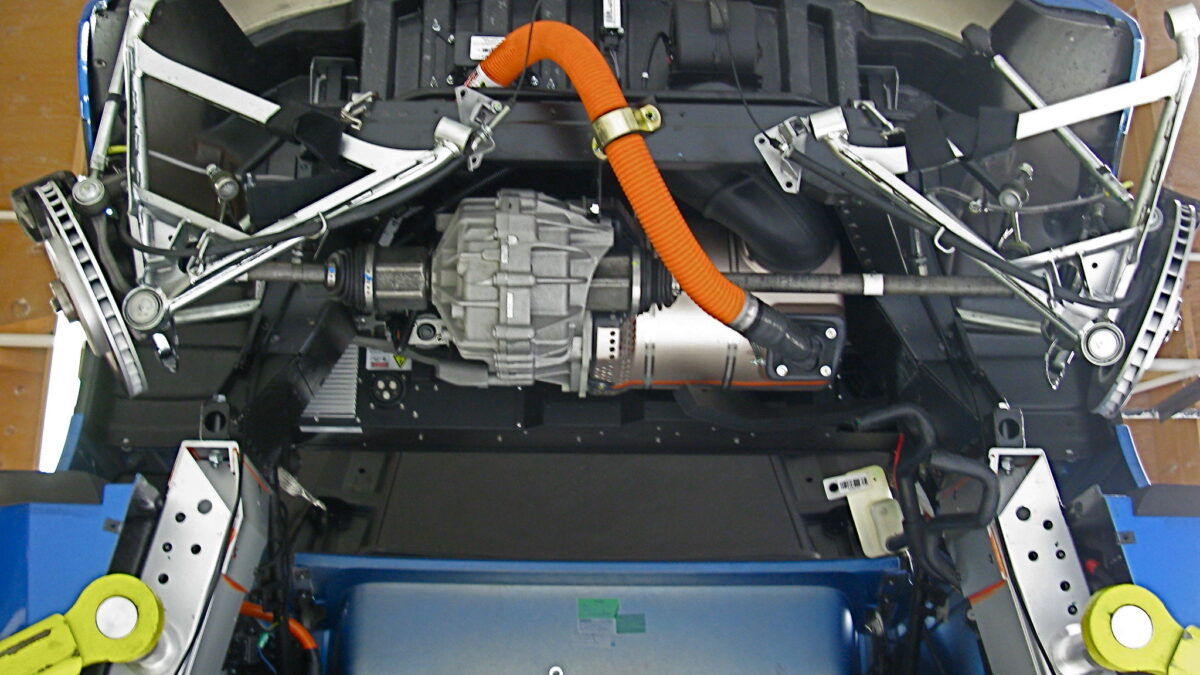Studies Show the Electric Vehicles Democrats Insist You Buy Are Worse for the Environment and Lower Quality
REPORTED BY: HELEN RALEIGH | JULY 11, 2022
Two recent studies have shown that electric vehicles have more quality issues than gas-powered ones and are not better for the environment.

HELEN RALEIGH
VISIT ON TWITTER@HRALEIGHSPEAKS
Many people believe electric vehicles are higher quality than gas-powered vehicles and are emissions-free, which makes them much better for the environment. But two recent studies have shown that electric cars have more quality issues than gas-powered ones and are not better for the environment.
J.D. Power has produced the annual U.S. Initial Quality Study for 36 years, which measures the quality of new vehicles based on feedback from owners. The most recent study, which included Tesla in its industry calculation for the first time, found that battery-electric vehicles (EVs) and plug-in hybrid vehicles have more quality issues than gas-powered ones. According to J.D. Power, owners of electric or hybrid vehicles cite more problems than do owners of gas-powered vehicles. The latter vehicles average 175 problems per 100 vehicles (PP100), hybrids average 239 PP100, and battery-powered cars — excluding Tesla models — average 240 PP100. Tesla models average 226 PP100. Given the average cost of an electric car is roughly $60,000, about $20,000 more than the cost of a gas-powered car, it seems owners of EVs didn’t get the value they deserve.
Some blamed the supply-chain disruptions caused by pandemic-related lockdowns as the main reason for EVs’ quality issues. EV makers have sought alternative (sometimes less optimal) solutions to manufacture new vehicles. But the same supply-chain disruption affected makers of gas-powered vehicles. Yet the three highest-ranking brands, measured by overall initial quality, are all makers of gas-powered vehicles: Buick (139 PP100), Dodge (143 PP100), and Chevrolet (147 PP100).
Some pointed to the design as a main contributing factor to EVs’ quality issues. According to David Amodeo, global director of automotive at J.D. Power, automakers view EVs as “the vehicle that will transform us into the era of the smart cars,” so they have loaded up EVs with technologies such as touch screens, Bluetooth, and voice recognition. EV makers also prefer to use manufacturer-designed apps to “control certain functions of the car, from locking and unlocking the doors remotely to monitoring battery charge.” Increasing technical complexity also increases the likelihood of problems. Not surprisingly, EV owners reported more infotainment and connectivity issues in their vehicles than owners of gas-powered vehicles. Amodeo acknowledged that “there’s a lot of room for improvement” for EVs.
Electric Vehicles Are Worse for the Environment
Besides quality issues, a new study published by the National Bureau of Economic Research found that electric vehicles are worse for the environment than gas-powered ones. By quantifying the externalities (both greenhouse gases and local air pollution) generated by driving these vehicles, the government subsidies on the purchase of EVs, and taxes on electric and/or gasoline miles, researchers found that “electric vehicles generate a negative environmental benefit of about -0.5 cents per mile relative to comparable gasoline vehicles (-1.5 cents per mile for vehicles driven outside metropolitan areas).”
Researchers specifically pointed out that despite being treated by regulators as “zero emission vehicles,” electric cars are not emissions-free. Charging an EV increases electricity demand. Renewal resources supply only 20 percent of the country’s electricity needs. The remaining 80 percent were generated by fossil fuels such as coal and natural gas, despite billions of dollars in green subsidies.
“The comparison between a gasoline vehicle and an electric one is really a comparison between burning gasoline or a mix of coal and natural gas to move the vehicle,” according to The American Economic Review.
Batteries Create Pollution
NBER’s study doesn’t cover all the reasons that EVs are worse for the environment than gas-powered cars. For instance, most of today’s EVs are powered by lithium-ion batteries. Due to heavy government subsidies, China dominates the global production of lithium-ion batteries and their precursor materials, especially graphite. China’s graphite production has notoriously contributed to significant pollution in the country.
Pollution can come “from graphite dust in the air, which is damaging whether inhaled or brought down to the earth in the rain,” a Bloomberg report found. More pollution results from the hydrochloric acid used to process mined graphite into a usable form. Hydrochloric acid is highly corrosive and can cause great environmental damage if leaked into groundwater or streams. China’s Shandong province, which is responsible for 10 percent of global graphite supply, had to suspend some of its production capacity due to environmental damages. But the growing demand in the west for EVs means such suspensions will only be temporary.
A typical electric car needs 110 pounds of graphite, and a hybrid vehicle needs around 22 pounds. Ironically, the U.S. government’s EV subsidies end up subsidizing China’s highly polluted production. So, if you think you are doing your part of saving the planet by driving an EV, think twice. We also know from past experiences that pollution in China ends up harming the rest of the world.
Compelling Americans to switch from gas-powered cars and trucks to electric ones has been crucial to President Joe Biden’s plan to fight climate change. He signed an executive order last year to have electric vehicles make up half of new cars and trucks sold in the U.S. by 2030. These recent studies show that Biden’s plan will result in Americans spending more money on vehicles of inferior quality while having little effect on climate change. More importantly, his plan will enrich the Chinese Community Party at the expense of the environment and U.S. taxpayers.



